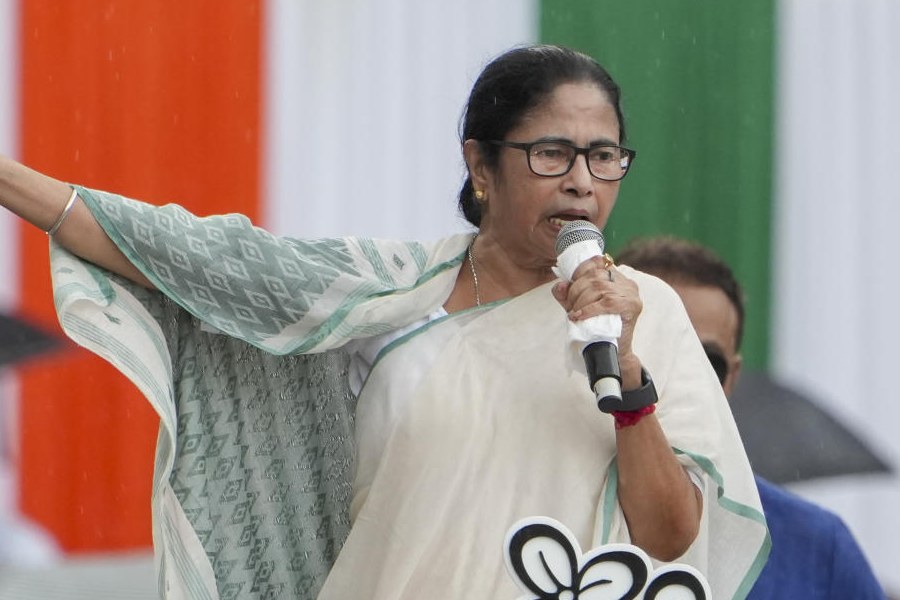The Bengal Assembly on Thursday passed by voice vote a resolution moved by the Trinamul Congress against the three new criminal laws — Bharatiya Nyaya Sanhita (BNS), Bharatiya Sakshya Adhiniyam (BSA) and Bharatiya Nagarik Suraksha Sanhita (BNSS).
State law minister Moloy Ghatak, who had moved the resolution on Wednesday, had described the laws as “draconian” and accused the BJP government at the Centre of suspending 147 MPs to pass the bill in both Houses in a hurry.
Ghatak also said the Union government had got the laws enacted without consulting state governments.
Responding to Ghatak’s allegation, the leader of the Opposition, Suvendu Adhikari, said on Thursday: “The process of making the laws started in 2019 and apart from all chief ministers, the Union law ministry asked for suggestions from all sections of the society, including judges, senior police officers and all MPs and MLAs of the country.”
“Chief minister Mamata Banerjee had given five important suggestions and the Union law ministry had informed her that those suggestions and observations had been incorporated. Now, she is trying to politicise the whole issue,” Adhikari added.
However, Ghatak said Mamata’s suggestions had been overlooked. “Our chief minister had requested that the Union law ministry seek suggestions from lawyers and other stakeholders but unfortunately the bar council and bar association had been kept out of the purview.”
Adhikari said those laws were already in force and so it was useless to waste the time of the Assembly. “... the government should make laws to stop infiltration and religious conversion...,” Adhikari added.
In response, Ghatak said: “The state government has formed a committee under Article 246 of the Constitution. Article 246 gives this legislative body the power to make and amend laws. This legislative body can make state-specific amendments even if it is a central law. We are discussing which aspects would be beneficial for the state.”
Lawyer Jayanta Narayan Chatterjee partially concurred with Ghatak’s claim that the Assembly had the power to make state-specific amendments to the central laws. “Since these are central laws, no state can entirely change them. However, the state can amend certain sections of the Act. Any amendments by a state should be based on thorough research, maintaining the Act’s integrity and value. While amendments can be more stringent, they must not undermine the essence of the law,” Chatterjee said.











